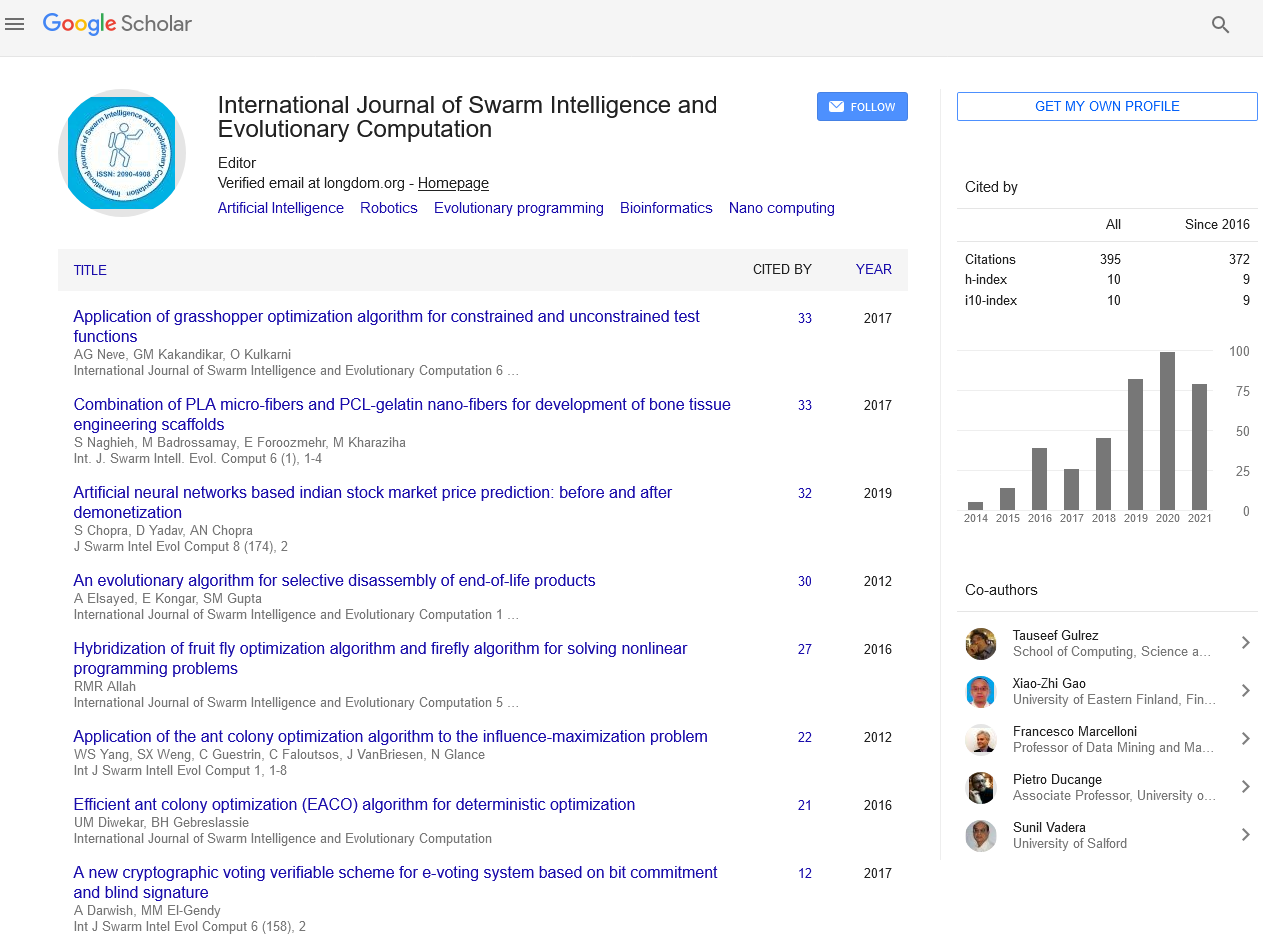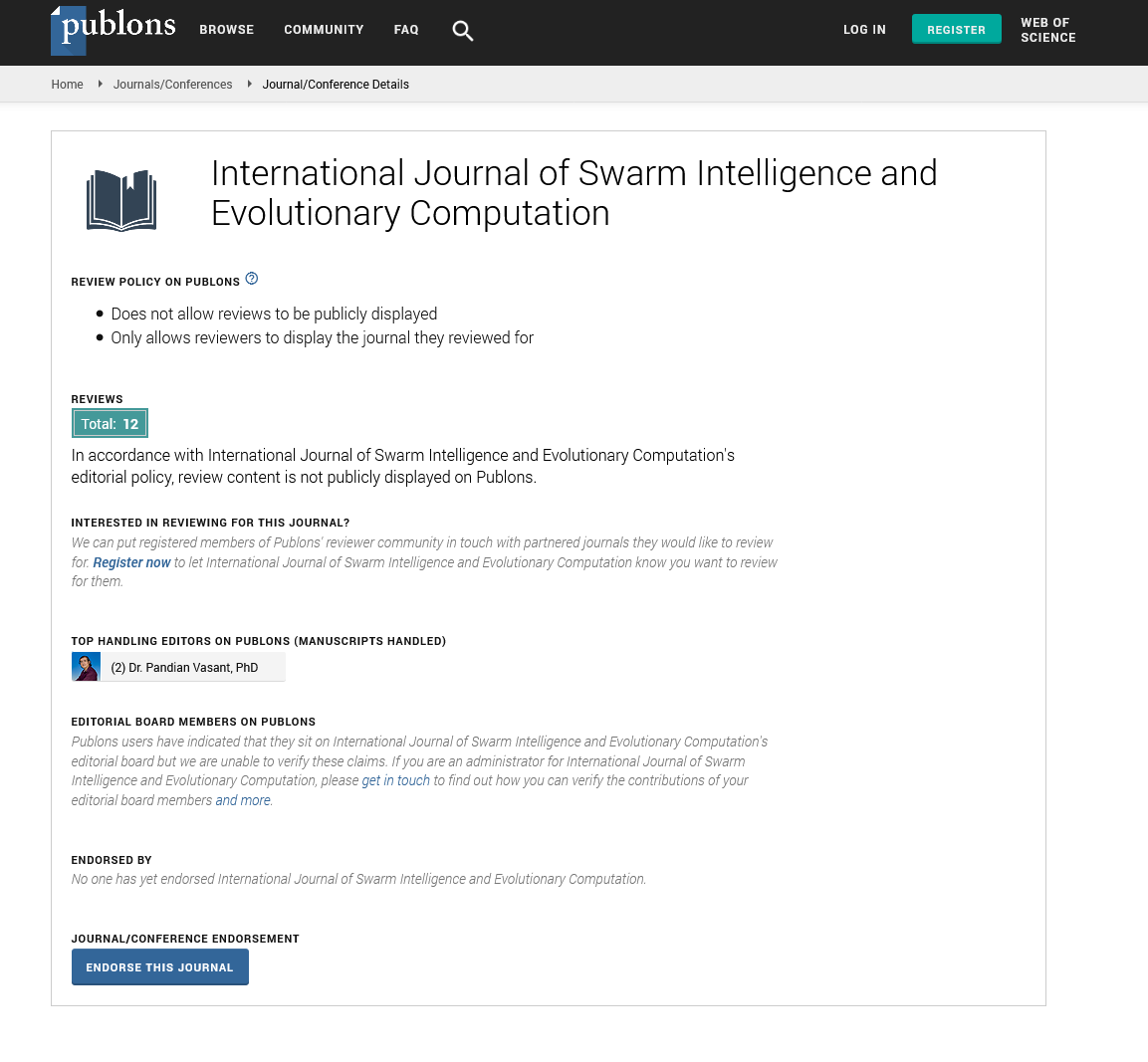Indexed In
- Genamics JournalSeek
- RefSeek
- Hamdard University
- EBSCO A-Z
- OCLC- WorldCat
- Publons
- Euro Pub
- Google Scholar
Useful Links
Share This Page
Journal Flyer

Open Access Journals
- Agri and Aquaculture
- Biochemistry
- Bioinformatics & Systems Biology
- Business & Management
- Chemistry
- Clinical Sciences
- Engineering
- Food & Nutrition
- General Science
- Genetics & Molecular Biology
- Immunology & Microbiology
- Medical Sciences
- Neuroscience & Psychology
- Nursing & Health Care
- Pharmaceutical Sciences
Abstract
A Functional Model of Action-Selection Guided by Emotional Stimuli
Dominique G Beroule and Pascale Gisquet-Verrier
Key brain networks underlying cognition and emotion are modulated by major neurotransmitter systems through reward/punishment circuits. Notably, the basal ganglia are thought to funnel emotional information towards motor outcomes. However, the mechanisms that would allow emotional stimuli to guide action selection have yet to be identified. Computational models may contribute to this goal. Here, by using a computer simulation of the guidedpropagation deterministic model, we show that emotional channels can quickly and selectively modulate actionoriented channels, by instantly retrieving all the emotional stimuli paired in the past with a current cue. In agreement with animal based data, the transient modulation signals that implement emotional anticipation appear to be more useful when targeting either newly formed or remote memory traces. The timing and evolution of these signals both suggest a new interpretation of the dopaminergic neuron activity in the basal ganglia during conditioning, usually regarded as coding for a ?reward prediction error? in the frame of reinforcement learning. After additional computer trainings involving ?emotions? of extreme values, the diversity of actions selected under the influence of a conditioned cue is shown to decrease through either compulsive or avoidance behaviors. Indeed, in the proposed functional model, similar modulation mechanisms account for the development of either drug addiction or posttraumatic stress disorder. Furthermore, spontaneous relapse into these dysfunctions is attributed here to local modulating deficits. The latter can partly be overcome by selectively shifting one of the few control parameters of the model, akin to neuromodulators.


